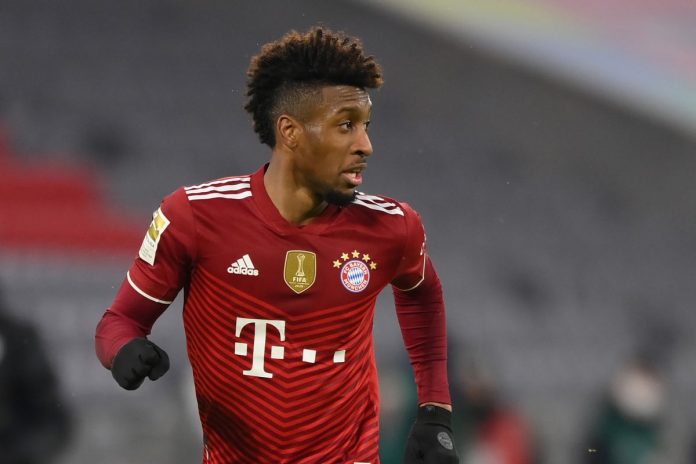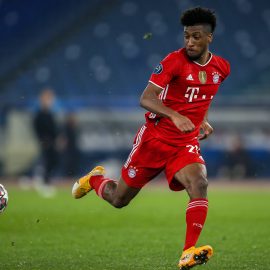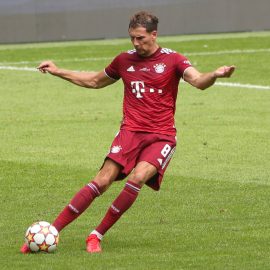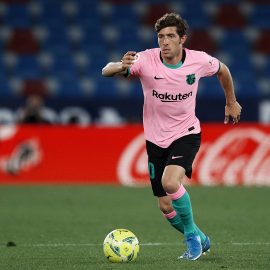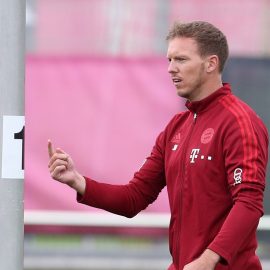As a sportsman he has already written a chapter for himself in German footballing history, and is widely acknowledged to be one of the finest strikers to have graced European football in the 1990s.
As a businessman he’s less known (neither Wikipedia nor the countless news stories covering his reign as Germany manager or the speculation on his management future after that include the name of his company) but equally effective; Klinsmann is vice president and partner in SoccerSolutions, a US-based sports marketing and business development firm, and has been nicknamed the ‘Rainmaker’ for his positive contributions to the company.
As a manager he has a limited CV (a role in the LA Galaxy management and 2 years at the head of the Germany national team) but like his career (football and commercial), he has tasted success wherever he has went. A strong showing in the 2006 World Cup cemented his place as a progressive and capable manager, and his next appointment – a 2 year contract (2008-2010) as Bayern Munich manager – is the perfect stage for Klinsmann to prove that he is as capable of delivering results with a football club as he was on the pitch, as a consultant and as a national team manager.
How then, do you describe Klinsmann?
He is an exceptional model for success – not only has he worked hard but he’s also worked smart, shaping his career through his vision as much as his talents. If people wonder how Klinsmann got the Germany job in the first place, you only have to look at his attention to detail, his progressive tactical approach and his ability to get the best out of the people around him. Klinsmann came, he promised and he was one of those rare individuals who could convince others that despite his inexperience, he could do better than any other candidate.
It was this confidence that allowed him to drop Kahn and replace him with Lehmann – and it is this same confidence that you can expect to see more of as he attempts to turn Bayern Munich into a European super-heavyweight in the next 2 years.
The fact that he delivered with Germany in 2006, and then quit without fanfare, showed two more qualities that you rarely see in managers – that Klinsmann could walk the talk (as he had done so often as a player) and deliver when the pressure was on, and that he was not looking to build a dynasty. It’s this professionalism that made Klinsmann such an attractive proposition for teams looking for managers to take them to the top, and it’s this same professionalism that ensures that he will do well at Bayern.
5 Things You Didn’t Know About Jurgen Klinsmann
-
- From his Wikipedia entry:Under the pseudonym Jay Goppingen, Klinsmann made a comeback as a player in 2003 for Orange County Blue Star in the American Premier Development League. The 39-year-old was able to score five goals in eight appearances, helping his team to reach the playoffs. The name is taken from the town of Göppingen, where Klinsmann was born.
-
- Played for Arsene Wenger when he was at Monaco between 1992 and 1994.
-
- Apart from 5 years at VFB Stuttgart, he’s never been at a club or management post for more than 3 years. Points to a short Bayern Munich career and you can expect Klinsmann to acheive his targets and then move on without fanfare or regret to recharge and chalk out his next target.
-
- Developed his own website, www.klinsmann.us (it’s undergoing a redesign – see here).
-
- Again, from Wikipedia:Klinsmann’s family operates a bakery in Stuttgart’s Botnang district and consequently he is sometimes affectionately referred to as the “baker’s son from Botnang”. Klinsmann is in fact a qualified baker’s apprentice.
Mick Hoban on Jurgen Klinsmann
Mick Hoban is the President of SoccerSolutions, and he was interviewed in May 2005 by our Steve Amoia for AC Cugini Calcio Connection (original interview is here).
A few snippets from that interview:
“Jürgen is a Vice President and partner in SoccerSolutions, LLC. We first started working together about 4 years ago and Jürgen joined SoccerSolutions in late 2001. I was first introduced to Jürgen by adidas. They asked me, when I was a soccer consultant with adidas International, if I would meet with Jürgen and give him my perspective on the US soccer market and how he might develop his career in the US. After a few extremely positive and enjoyable meetings we decided that we would join forces and that Jürgen would become a partner in SoccerSolutions. Jürgen wanted to work alongside Warren and myself to see how sports marketing and business development related to soccer works ‘on the other side of the table’. For most of his career as a player Jürgen had been engaged as a ‘spokesman’ for various companies and so he knew what the role of a spokesman/endorsee felt like but by working as a consultant he has now been actively involved with why and how companies develop marketing campaigns, business development concepts and entire businesses in soccer, including how they measure the success of such initiatives.
By working on various projects related to event management, market analysis, the development of marketing plans, plans for youth development, grassroots program development and implementation with prominent sponsors, business development plans for diverse companies seeking to capitalize on their position in the soccer market etc., Jürgen has picked up a business skill-set and approach that few soccer managers/coaches can claim to have developed.
In our company Jürgen is the ‘Rainmaker’ or the ‘Lightning-Rod’ as we receive lots of publicity and opportunities as a result of his status in the game and position in our company. His network around the globe and the positive impressions he has left wherever he has played enables Jürgen to access and cooperate with many ‘movers and shakers’ in the world game. In Jürgen’s current capacities, Warren and I, along with a couple of other associates, are able to provide Jürgen with a level of support and service that he, and other celebrities/former athletes like him, would get from a large sports marketing agency e.g. IMG or Octagon. Jürgen decided, when he joined our company, that he would prefer to receive his support from partners in a company in which he had equity, a company he was personally committed to. As you can imagine, Jürgen’s focus through World Cup 2006 is on preparing the German national team to succeed in the competition. Everything else, except his family, is secondary.”
“Jürgen is a great example to young players in that he continuously strives to improve himself ‘on and off the field of play’. His commitment to languages (German, English, Italian and conversational French) is admirable and so too has been his commitment to learning about new technologies (developed his own website) and starting his own foundation to give something back to a world that has given him so much, which he sees as a responsibility that is part and parcel of his success.”
Credit: Steve Amoia
Klinsmann the Manager
What can you expect from Klinsmann?
For starters, you can expect a flurry of transfer activity as Klinsmann builds a strong base for the future, clears out players who do not share that vision and brings in new ones. You can expect Bayern to espouse the same type of attractive football that was a hallmark of their 2006 World Cup campaign, an attacking philosophy bonded with a spine of steel.
Klinsmann believes heavily in fitness and individualised training and while his methods will not immediately bear fruit, the foundations he will lay will pay dividends towards the end of his first season.
Expectations will be high as they always are with Bayern, but Klinsmann will evoke strong emotions from Bayern fans and they’ll be expecting something special. He’s taking over from a very good manager in Ottmar Hitzfeld, and he’s not an easy act to follow.
But you can bet your house on Klinsmann having sized up the enormity of the task and prepared his plans for creating history with Bayern Munich.
Add Sportslens to your Google News Feed!
